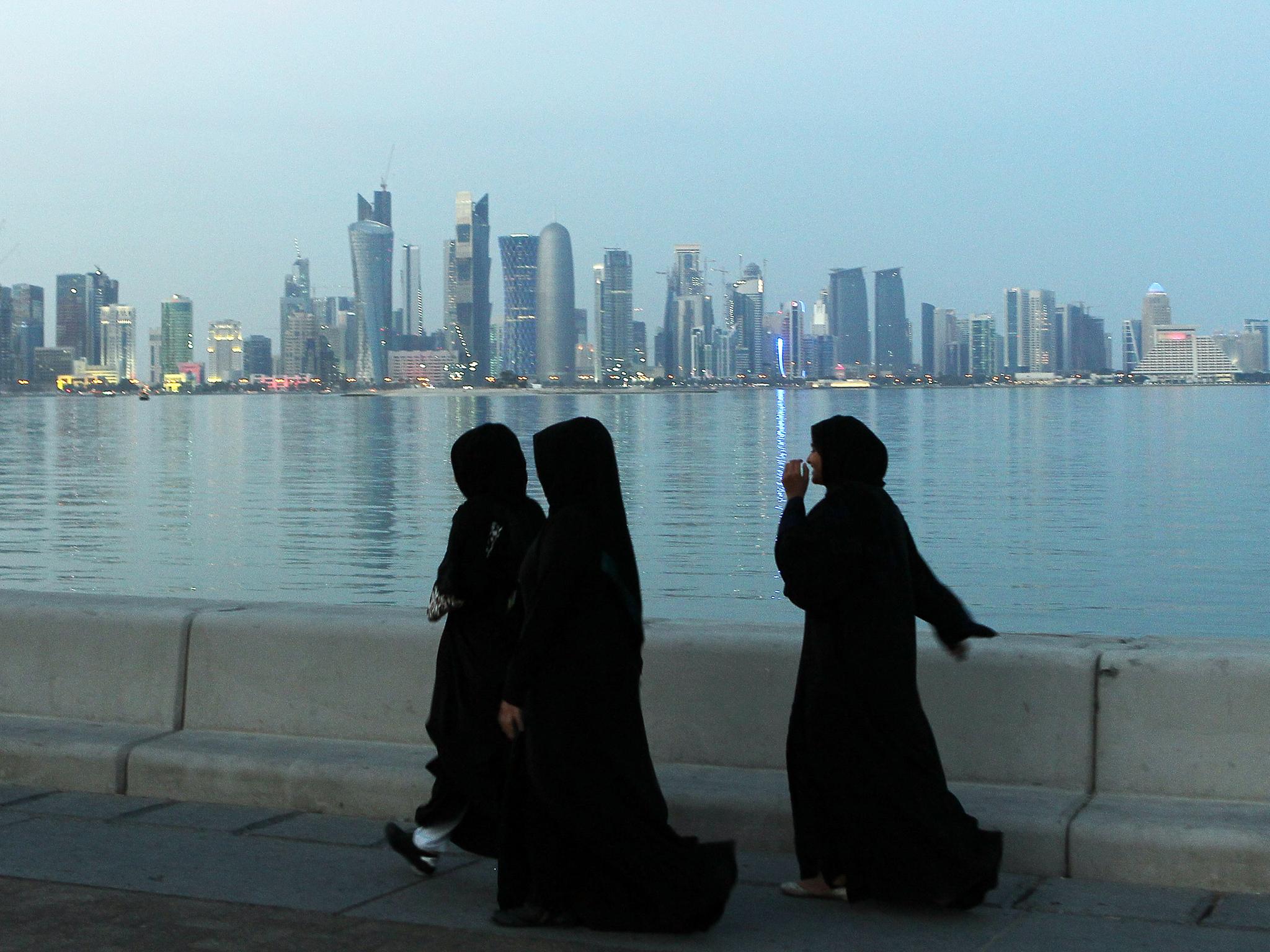I thought I was a Eurosceptic, but what I saw in Qatar will make me vote Remain
The world's global powers are not liberal democracies. The ideals of our culture are in retreat, and the only way to protect them is within a close-knit European family


I was, until relatively recently, a Eurosceptic. Why couldn't Britain flourish on its own as a medium-sized bastion of liberal democracy and free market growth?
Like a fun-loving version of Switzerland transplanted onto our North Atlantic archipelago, perhaps. Our soft power – our music, telly, films, literature, newspapers and media – would project our influence around the world. We would blossom, free of the constraints of Europe and its knackered economies and creaking working practices.
But then, two years ago, I went on a business trip to Qatar in the Middle East.
In one of that city-state's few licensed bars, at two in the morning, I looked around me and saw the future. I saw the globalised world on a postage stamp. And it didn't give two hoots about Britain.

In that bar I spotted a a scattering of European expats, but most of the drinkers were from the new global powers. They were Chinese, Indian, Arab and Russian. They were not listening to UK or US music; they were listening to African beats and South American pop.
In our globalised future, Britain's ‘soft power’ will be the equivalent of firing a pea-shooter at a panther.
These new powers are not liberal democracies as we would recognise them. Across huge swathes of the world, the ideals of our liberal culture are in retreat. The concepts of the rule of law, freedom of the press, human rights and civil liberties are on the wane.
Just look at Turkey, Russia, Brazil, South Africa. That’s before we even consider China's utter disdain for democracy and most of the ideals we hold dear. Or, dare I say it, the politics of Donald Trump.
The European Union is not ideal, but what democratic government is? With the new realities of globalisation, we need to be on the right team. We need to hold close those with whom we have most in common.
This referendum should not be about short-term economics or the fear of recession, but there is a very strong argument for the EU in terms of our collective economic history and financial needs.
Much of Europe is dealing with similar long term issues as the UK, of post-industrial malaise and the rise of cheap labour in the developing world. The failure of industrial policy is the same in northern Italy as it is south Yorkshire. It’s better to grapple with these issues together.
Yet this vote is not really about the economy. It is about ideas. With Putin parking his tanks on our European lawn, with Isis throwing gay people off tall buildings within sight of the Mediterranean, with China's economic nationalism threatening everything we believe in, and with Arab sovereign wealth funds buying up any Western assets they can get their hands on, now is the wrong time to divorce ourselves from our closest allies, culturally and geographically.
The Europe we need to embrace next Thursday is the Europe of the shared battle against left-wing and right-wing fascism; of the reformation; of the renaissance; of the enlightenment; of mass secularism; of liberal democracy.
If we really want to protect the values that we in Britain claim to treasure, then we will best do so within a close-knit European family. That’s why I, a long-standing Eurosceptic, will be voting to remain.
Ed Dorrell is head of content at the Times Educational Supplement
The EU referendum debate has so far been characterised by bias, distortion and exaggeration. So until 23 June we we’re running a series of question and answer features that explain the most important issues in a detailed, dispassionate way to help inform your decision.
What is Brexit and why are we having an EU referendum?
Does the UK need to take more control of its sovereignty?
Could the UK media swing the EU referendum one way or another?
Will the UK benefit from being released from EU laws?
Will we gain or lose rights by leaving the European Union?
Will Brexit mean that Europeans have to leave the UK?
Will leaving the EU lead to the break-up of the UK?
What will happen to immigration if there's Brexit?
Will Brexit make the UK more or less safe?
Will the UK benefit from being released from EU laws?
Will leaving the EU save taxpayers money and mean more money for the NHS?
What will Brexit mean for British tourists booking holidays in the EU?
Will Brexit help or damage the environment?
Join our commenting forum
Join thought-provoking conversations, follow other Independent readers and see their replies
Comments
Bookmark popover
Removed from bookmarks